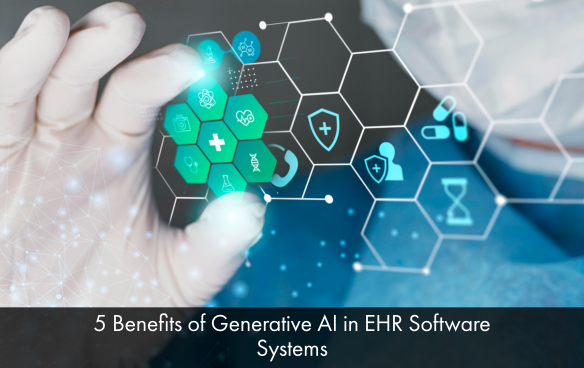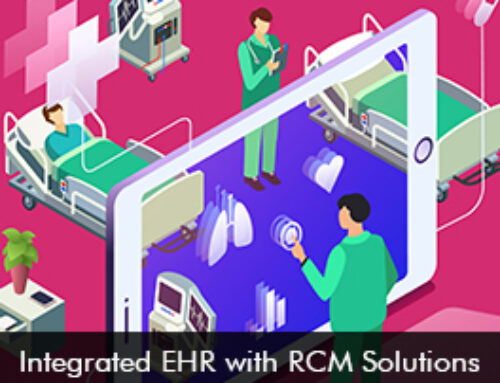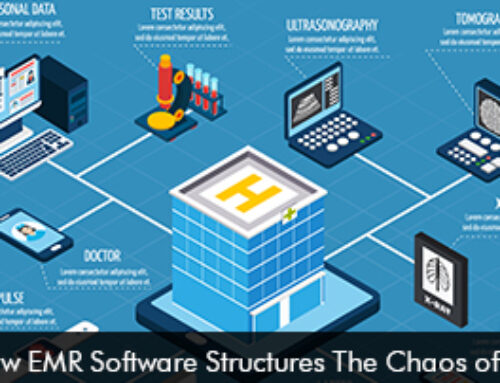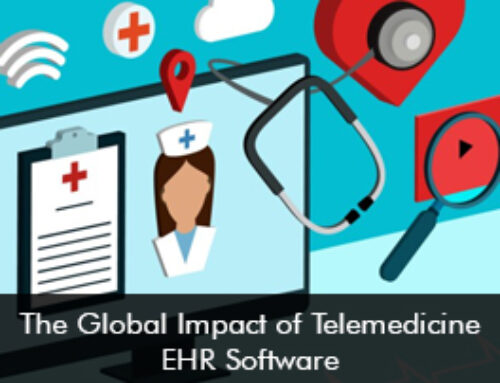The medical industry has been subject to many remarkable advancements ever since the transition to digital began with the introduction of Electronic Medical Records software in 2009.
As clinicians moved to a digital era, it was expected that as we developed new technologies, the health sector would also benefit.
Generative AI is a recent innovation that has greatly impacted many aspects of the standard EHR workflow and is now even affecting how we manage and is able to utilize clinical information.
5 Benefits of Generative AI in EHR Software Systems
Some benefits of generative AI in EMR software include:
- Streamlined Workflow
- Integrating generative AI into existing EHR software can help automate tasks such as documentation, coding, and even administrative processes, allowing physicians to spend more time with patients.
- Enhanced Data Sharing
- Machine learning techniques such as federated learning or differential privacy can be utilized to share insights and learnings between health organizations without sharing any sensitive patient information.
- Medical Image Analysis
- There are applications for Generative Adversarial Networks (GANs) and other generative AI techniques to create higher-quality medical images. This can help to augment limited datasets for clinicians, improve image resolution, and assist in training AI algorithms.
- Natural Language Generation
- Generative AI can convert structured EHR data into reports and summaries. This feature could allow health professionals to easily summarise and sift through large amounts of EHR patient data. It could even enhance communication between healthcare teams, leading to improved care coordination.
- Predictive Models and Decision Support
- By leveraging AI models, EHR systems could be capable of generating personalized predictive models for individual patients based on their current conditions and medical history.
It should be noted that artificial intelligence is by no means a perfect solution, and definitely does have its drawbacks. Not to mention the potential challenges in maintaining compliance with health regulations, accounting for potential biases, and ensuring data privacy and security.
However considerable investments are being made in this sector by huge tech giants such as Microsoft and Amazon spearheading the development of such tools specifically in healthcare.
Generative AI in Current EMR Software
It was announced that Amazon Web Services, Inc. (AWS) released a preview for a new medical tool called AWS HealthScribe – a fully HIPPA Eligible service able to automatically generate clinical notes, simply by analyzing conversations between physicians and patients.
Similarly, Microsoft also announced its plans to integrate GPT-4 into its Azure OpenAI Service, giving health IT developers many new opportunities to develop existing health IT systems.
Generative AI has recently been a hot topic globally, since ChatGPT’s sudden jump to the spotlight. With many applications such as Natural Language Processing (NLP), algorithm analysis, and even AI Image Generation, what do these new tools bring to the table for the average clinician?
What Does This Mean For EMR Software?
Such platforms like AWS HealthScribe and Microsoft’s Azure OpenAI and play an interesting role for health IT developers, by introducing more useful and advanced features.
Since many EHR vendors (such as Epic, PrognoCIS, and eClinicalWorks) already use APIs and tools provided by Azure and AWS, such features should be able to automatically integrate into some of the most widely used EMR software systems and improve our existing health IT systems.
With more organizations such as Microsoft and Amazon coming into play in the Electronic Health Records Software industry, one could hope that the presence and reputation of such companies could be leveraged to introduce better standards and compatibility between EHR software vendors.
Whilst improved standardization between vendors doesn’t necessarily affect data standards and how data might be sent between practices, there still exists an expectation that this can improve compatibility between EMR software systems and hence lead to better data interoperability.
Conclusion
Overall, generative AI grants healthcare providers an opportunity to generate data-driven insights and deliver more personalised care plans.
Despite the challenges and potential drawbacks, effective implementation of ethical AI in medicine has the potential to greatly improve the efficiency and accuracy of our healthcare.







